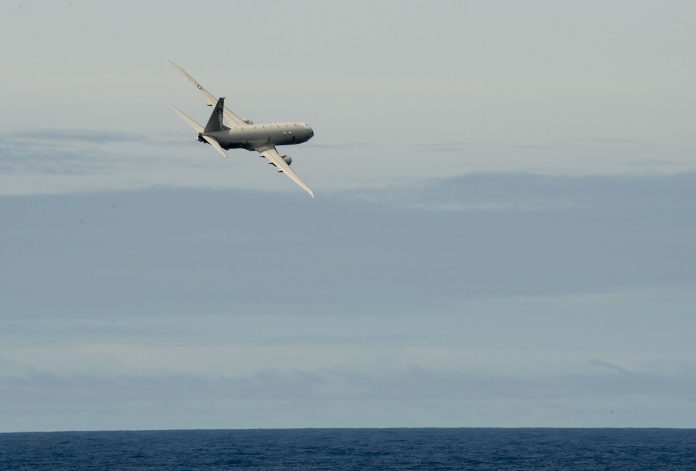
PEARL HARBOR, Hawaii: A U.S. Navy P-8A Poseidon maritime patrol aircraft was lased by People’s Republic of China (PRC) navy destroyer 161 on Feb. 17 while flying in airspace above international waters approximately 380 miles west of Guam.
The P-8A was operating in international airspace in accordance with international rules and regulations. The PRC navy destroyer’s actions were unsafe and unprofessional.
Additionally, these acts violate the Code for Unplanned Encounters at Sea (CUES), a multilateral agreement reached at the 2014 Western Pacific Naval Symposium to reduce the chance of an incident at sea. CUES specifically addresses the use of lasers that could cause harm to personnel or damage to equipment. The destroyer’s actions were also inconsistent with a Memorandum of Understanding (MOU) between U.S. Department of Defense and the Ministry of National Defense of the PRC regarding rules of behavior for safety of air and maritime encounters.
The laser, which was not visible to the naked eye, was captured by a sensor onboard the P-8A. Weapons-grade lasers could potentially cause serious harm to aircrew and mariners, as well as ship and aircraft systems.
The P-8A is assigned to VP-45, based out of Jacksonville, Florida, and is forward-deployed to Kadena Air Force Base in Okinawa, Japan. The squadron conducts routine operations, maritime patrol and reconnaissance in the U.S. 7th Fleet area of operations.
U.S Navy aircraft routinely fly in the Philippine Sea and have done so for many years. U.S. Navy aircraft and ships will continue to fly, sail and operate anywhere international law allows.
U.S. 7th Fleet is the largest numbered fleet in the world, and with the help of 35 other maritime-nation allies and partners, the U.S. Navy has operated in the Indo-Pacific region for more than a century, providing credible, ready forces to help preserve peace and prevent conflict.
from Defense News by DefenceTalk.com https://ift.tt/389kHke
via Defense News
No comments: